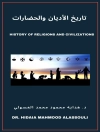In ‘A Plain Account of Christian Perfection’ by John Wesley, the author delves into the concept of perfection as it pertains to Christianity. Known for his Methodist teachings, Wesley explores the idea of achieving a higher spiritual state through faith and sanctification. This book is written in a straightforward and accessible style, making it suitable for readers of all backgrounds who are interested in spiritual growth and religious philosophy. Wesley’s emphasis on personal holiness and ethical living is evident throughout the text, providing readers with practical insights on how to deepen their relationship with God. John Wesley, a prominent figure in the evangelical revival movement of the 18th century, was deeply passionate about spreading the message of God’s love and grace. His experiences as a preacher and theologian inform the content of ‘A Plain Account of Christian Perfection, ‘ making it a valuable addition to the field of Christian literature. Wesley’s commitment to sharing his beliefs with others is evident in this seminal work, reflecting his dedication to spiritual enlightenment and moral development. I highly recommend ‘A Plain Account of Christian Perfection’ to anyone seeking a deeper understanding of Christian theology and the pursuit of spiritual perfection. Wesley’s insights are timeless and offer readers a thoughtful and inspiring perspective on the transformative power of faith and grace.
About the author
John Wesley (1703–1791) was a seminal English cleric, theologian, and evangelist who is best recognized as a founding figure of the Methodist movement. His writings and sermons played a pivotal role in the development of Methodist theology, particularly concerning Christian practice and discipleship. One of his most significant works, ‘A Plain Account of Christian Perfection’ (1766), offers an exhaustive exposition on the doctrine of Christian perfection, a cornerstone concept in Methodist theology. In this treatise, Wesley delves into the attainability of spiritual completeness in this life, rigorously examining the Scriptures and early Church teachings to affirm his views (Wesley, J. (1766). A Plain Account of Christian Perfection). Wesley’s literary style combines methodical argumentation with fervent religiosity, reflecting both his Oxford education and pietistic influences. His writings contributed extensively to religious literature and shaped the Methodist approach to sanctification and holy living. Wesley’s legacy endures through his published sermons, hymns, and theological treatises, which continue to influence Christian thought and practice.




